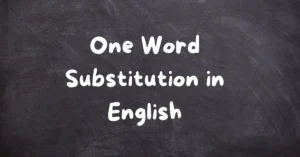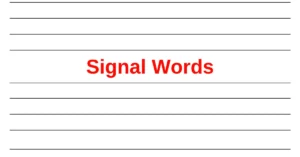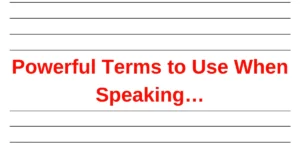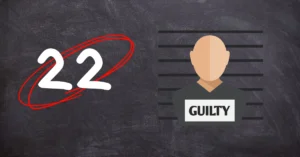Language is a living, breathing entity that evolves with time, reflecting the culture, history, and imagination of its speakers. English, with its vast and rich history, has accumulated a treasure trove of words that once graced the tongues of poets, scholars, and everyday people but have since faded from common use. These words, though archaic, carry with them unique shades of meaning and a charm that brings color and depth to our expressions.
This vocabulary lesson explores 20 delightful and intriguing old English words that are rarely heard today. From poetic expressions like rathe and eftsoons to vivid descriptors like crump and smicker, these words offer a window into the linguistic creativity of the past.
List of Old English Words No Longer Used

Whether you’re a language enthusiast, a writer looking for inspiration, or simply curious about the quirks of English, this lesson will enrich your vocabulary and give you a deeper appreciation for the language’s history.
So, journey with us as we uncover these forgotten gems, and perhaps you’ll find a few favorites to bring back into the light of everyday conversation!
1. Attercop
- Meaning: Spider. Derived from Old English ātor (poison) + cop (head), referring to the venomous aspect of spiders.
- Example Sentence: The dusty attic was home to many an attercop spinning its intricate web.
2. Bespitten
- Meaning: To be covered in spit. The prefix be- implies being completely enveloped.
- Example Sentence: After the heated argument, the man stormed away, his face bespitten with fury and rage.
3. Crump
- Meaning: Crooked or bent, often describing something misshapen or irregular.
- Example Sentence: The old tree had crump branches reaching toward the sky like twisted fingers.
4. Doxy
- Meaning: A sweetheart or mistress, though historically it sometimes referred to a disreputable woman.
- Example Sentence: The sailor sang ballads of his doxy waiting for him by the shore.
5. Earsh
- Meaning: A stubble field left after harvest. Common in agricultural communities.
- Example Sentence: The farmers led their sheep to graze on the earsh after the wheat had been reaped.
6. Eftsoons
- Meaning: Soon after or once again. Used in poetic or old-fashioned contexts.
- Example Sentence: He completed his work and eftsoons began his preparations for the feast.
7. Forsooth
- Meaning: Indeed; truly, often used to emphasize a statement in an archaic tone.
- Example Sentence: Forsooth, it is a tale worth telling, full of adventure and mystery.
8. Gardyloo
- Meaning: A cry of warning before throwing waste from windows in medieval cities. Originates from the French phrase garde à l’eau (“watch out for the water”).
- Example Sentence: Hearing the shout of “Gardyloo!” the pedestrians hurriedly cleared the narrow street.
9. Hither
- Meaning: To this place, used to indicate direction.
- Example Sentence: Come hither, my friend, and see the wonders of the forest.
10. Jargogle
- Meaning: To confuse or mix up, often applied to situations or objects.
- Example Sentence: The poorly written instructions left the students jargogled and unsure of how to proceed.
Also Read: 81 Old English Words to Enrich Your Vocabulary
11. Lief
- Meaning: Gladly or willingly; often used in poetic or formal expressions.
- Example Sentence: I would lief help you with your endeavor, for it brings me joy.
12. Nithing
- Meaning: A coward or villain; a deeply insulting term in Old English.
- Example Sentence: The nithing who betrayed his comrades was cast out of the village in shame.
13. Quotha
- Meaning: An expression of disdain or sarcasm, equivalent to saying “indeed” or “really” in a mocking tone.
- Example Sentence: “You think yourself a hero, quotha!” she sneered.
14. Rathe
- Meaning: Early or promptly; often used in a poetic sense.
- Example Sentence: The rathe blossoms of spring delighted the weary travelers.
15. Shent
- Meaning: Disgraced or ruined, often referring to reputation or honor.
- Example Sentence: His reckless actions left his family name forever shent in the eyes of society.
16. Smicker
- Meaning: To smile amorously or coyly, often suggesting flirtation.
- Example Sentence: She smickered at him from across the room, her intentions unmistakable.
17. Swink
- Meaning: To labor or toil, often in reference to hard, physical work.
- Example Sentence: The farmers swinked from dawn to dusk during the harvest season.
18. Thole
- Meaning: To endure or tolerate, often used in the context of suffering.
- Example Sentence: He learned to thole the hardships of life with quiet dignity.
19. Twain
- Meaning: Two; an archaic term for a pair.
- Example Sentence: The twain travelers set off on their journey at the break of dawn.
20. Wight
- Meaning: A person or creature, sometimes with a supernatural or otherworldly connotation.
- Example Sentence: The lone wight wandered the desolate moors under the pale moonlight.
 Vocabulary, Words
Vocabulary, Words  Vocabulary, Words
Vocabulary, Words  Vocabulary, Words
Vocabulary, Words  Vocabulary, Words
Vocabulary, Words